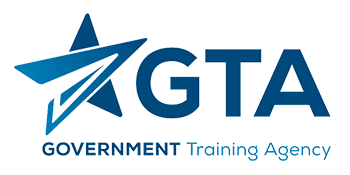There is no other crime that accounts for a higher dollar loss to victims than real estate crime. It has far reaching impact to individual victims as well as business and the national economy as a whole.

There is no other crime that accounts for a higher dollar loss to victims than real estate crime. It has far reaching impact to individual victims as well as business and the national economy as a whole.
This type of crime comes in many forms and as suspects devise more creative ways to accomplish this crime, law enforcement must remain a step ahead by enlisting proactive and preventative methods to circumvent these crimes.
This Post training course will provide law enforcement investigators the tools needed to respond to these concerns. Financial crime investigators, regardless of level of experience, are encouraged to participate in this very timely and interactive training course.
Course Topics:
Course Prerequisites:
While this is not a search warrant writing class, it is recognized that writing a proper search warrant in relation to investigations is essential to your job. With that in mind, the following has been established as a minimum baseline for students attending this course:
The Southern California Intergovernmental Training and Development Center (ITDC) operates under the name of Government Training Agency (GTA)/Regional Training Center (RTC) and is often referred to as the San Diego Regional Training Center.
The GTA/RTC is a governmental agency created in 1972 via a Joint Powers Agreement, by thirteen cities within San Diego County, the County of San Diego, and the State of California. Today, its member agencies are comprised of all eighteen cities within the County of San Diego and the County of San Diego.
The GTA/RTC was created to provide high quality training and organization development consulting services to public agencies at a reasonable cost and to assist the parties of the agreement in their efforts to develop and implement employee training programs, including the holding of seminars, training institutes and other education courses.
The Center is self-supporting, deriving its revenue from grants and from payments for services rendered to its member parties and other participating agencies.The GTA/RTC’s services are aimed at enhancing the ability of all public sector organizations and the skills of their employees, to meet the needs of individual citizens and the community at large.
We support public agencies throughout the State of California and their employees in their growth and development and work to enhance our clients’ staff training and development solutions by serving as an extension of their training function.
The GTA/RTC seeks to provide training that instills necessary skills as well as motivates public service employees to have a positive impact in the workplace and in their community.
To this end we also work to provide leadership and coordination in utilizing the valuable resources and talents available for developing training programs that will be responsive to the needs of all public agencies who wish to participate.
The GTA/RTC works with a wide variety of organizations and individuals to find and provide the best possible training for our clients at the most reasonable costs possible.
Our partnerships are built to maximize all resources, people and information and tap into the vast depths of training knowledge that we can possibly find. The Government Training Agency/Regional Training Center has a unique ability to find and contract with organizations and individuals that are specialists in their field.
The Government Training Agency/Regional Training Center exists to serve public entities with partnerships that bring the best from both the public and private sectors.The GTA/RTC stands behind its training efforts, works to provide the best it can to clients and has been in existence for over 48 years. Our track record is proven and shows us to be one of the top government training organizations in California.
Our Mission:
To support public agencies and employees in their growth and development
To provide quality, cost effective training to our clients
To enhance our clients’ staff training and development solutions by serving as an extension of their training function
To provide training that instills necessary skills as well as motivates public service employees to have a positive impact in the community and in their workplace
Our Values:
Collaborative relationships with our clients and partners
Empowering our clients and are deeply invested in the success of public agencies and their employees
Taking an innovative approach to all training
Strong relationships within our government community that provide the best formula for success
Providing professional, courteous and respectful service to all our clients.
Our Objectives:
To support public agencies and employees in their growth and development
To enhance our clients staff training and development solutions by serving as an extension of their training function
To provide training that instills necessary skills as well as motivates public service employees to have a positive impact in the workplace and in their community
To provide leadership and coordination in utilizing the valuable resources and talents available for developing training programs that will be responsive to the needs of all public agencies who wish to participate
Develop and offer quality training programs at a minimum of cost which will fulfill the need for management development, organization skills, human relations, technical skills, and information about new trends in government
Improve intergovernmental cooperation by providing a forum and environment in which mutual problems and programs can be identified and discussed
Undertake such other activities as are consistent with the general purposes and the Joint Exercise of Powers Agreement
© 2025 coursetakers.com All Rights Reserved. Terms and Conditions of use | Privacy Policy